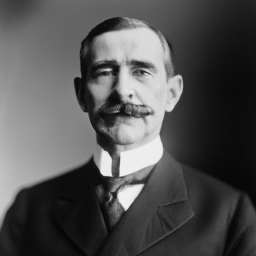Woodrow Wilson, a leader of the Progressive Movement, was the 28th President of the United States (1913-1921). On the occasion of his birthday, Constitution Daily looks at some unusual facts related to one of the more controversial Presidents in American history. Wilson's presidency was marked by significant events such as World War I, the implementation of progressive policies, but also tarnished by his support for segregation and the mistreatment of Black federal workers.
One of the most controversial aspects of Wilson's presidency was his role in enabling segregation and vile treatment of Black federal workers. Despite being a progressive leader, Wilson allowed policies that segregated federal employees and normalized racial discrimination. This legacy casts a dark shadow over his presidency, as it contradicted the principles of equality and justice that the Progressive Movement advocated for.
Woodrow Wilson's policy of neutrality at the outbreak of World War I was another significant event during his presidency. Initially, he aimed to keep the United States out of the war and focused on domestic issues. However, as the war escalated and American interests were threatened, Wilson led the country into the conflict. Under his leadership, the United States played a crucial role in the Allied victory and contributed to the eventual establishment of the League of Nations.
The controversy surrounding Wilson extends beyond his policies. A provocatively titled opinion piece about the former president, known to have racist views, has triggered a backlash from social media. Many criticize Wilson's racist beliefs and actions, emphasizing that he doesn't deserve an image that overlooks the harm he caused to marginalized communities.
Despite these controversies, Woodrow Wilson's presidency had a lasting impact on American history. He implemented numerous progressive policies, such as the creation of the Federal Reserve System and the passage of the Clayton Antitrust Act. Wilson also advocated for women's suffrage, eventually leading to the ratification of the 19th Amendment in 1920.
In the realm of international affairs, Wilson's leadership during World War I and his efforts to establish the League of Nations showcased his commitment to global cooperation and peace. While the United States ultimately did not join the League of Nations, Wilson's vision laid the groundwork for future international organizations like the United Nations.
In conclusion, Woodrow Wilson's presidency was marked by both progressive achievements and controversial decisions. While his leadership during World War I and his progressive policies left a lasting impact on America, his support for segregation and racial discrimination tarnished his legacy. Wilson's presidency remains a subject of debate, highlighting the complex nature of historical figures and the need to critically examine their actions and beliefs.
